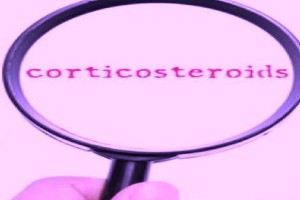
[the_ad_placement id=”adsense-in-feed”]
Geneva: The World Health Organisation has suggested not to use corticosteroids in the treatment of patients with non-severe COVID-19 as the treatment. It though recommended systemic corticosteroids for the treatment of patients with severe and critical COVID-19.
Corticosteroids have received worldwide attention as a potentially effective treatment for COVID-19 and are listed in the World Health Organization (WHO) model list of essential medicines, readily available globally at a low cost, and of considerable interest to all stakeholder groups.
On Wednesday night, the WHO released guidance for clinicians and health care decision-makers on the use of corticosteroids in patients with COVID-19. This guideline, developed in collaboration with the non-profit Magic Evidence Ecosystem Foundation (MAGIC), provided methodologic support to develop and disseminate living guidance for COVID-19 drug treatments.
[the_ad_placement id=”content-placement-after-3rd-paragraph”]
Work on this guidance had begun on June 22 when the RECOVERY trial published a preliminary report on the impact of corticosteroids. To supplement the results, WHO partnered with investigators of seven trials on corticosteroids to conduct a meta-analysis of these trials, in order to rapidly provide additional evidence to build on RECOVERY data and inform guidance development.
The guideline panel was informed by combining two meta-analyses which pooled data from eight randomized trials (7184 participants) of systemic corticosteroids for COVID-19. The panel discussions were also informed by two other meta-analyses, which were already published and pooled data about the safety of systemic corticosteroids in distinct but relevant patient populations.
The resulting evidence summary suggested that systemic corticosteroids probably reduce 28-day mortality in patients with critical COVID-19 (moderate certainty evidence; seven studies,1703 patients; relative risk [RR] 0.80, 95% confidence interval (CI) 0.70–0.91; absolute effect estimate 87 fewer deaths per 1000 patients, 95% CI 124 fewer to 41 fewer), and also in those with severe disease (moderate certainty evidence; one study, 3883 patients; RR 0.80, 95% CI 0.70–0.92; absolute effect estimate 67 fewer deaths per 1000 patients, 95% CI 100 fewer to 27 fewer). In contrast, systemic corticosteroids may increase the risk of death when administered to patients with non-severe COVID-19 (low certainty evidence; one study, 1535 patients; RR 1.22, 95% CI 0.93–1.61; absolute effect estimate 39 more per 1000 patients, 95% CI 12 fewer to 107 more).
In addition, systemic corticosteroids probably reduce the need for invasive mechanical ventilation (moderate certainty of evidence; two studies, 5481 patients; RR 0.74, 95% CI 0.59–0.93). In contrast, harms, in the context of the mortality reduction in severe disease, are minor.
The panel made two recommendations: a strong recommendation for systemic (i.e. intravenous or oral) corticosteroid therapy (e.g. 6 mg of dexamethasone orally or intravenously daily or 50 mg of hydrocortisone intravenously every 8 hours) for 7 to 10 days in patients with severe and critical COVID-19, and a conditional recommendation not to use corticosteroid therapy in patients with nonsevere COVID-19.
– globalbihari bureau
[the_ad_placement id=”sidebar-feed”]





